Detangling TWO FOR THE ROAD
Fifty-six years ago today, Two for the Road was
released!
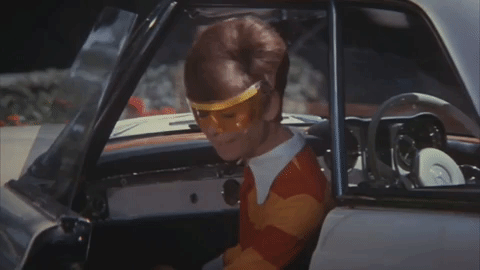
Two for the Road is one of the most interesting films Audrey Hepburn ever made. It’s certainly a departure from the princess-y, Givenchy-clothed romantic comedies she made with a string of leading men old enough to be her father.
The story, of a decade in a couple’s life told through road
trips through the French countryside, is told non-linearly, which is always fun
to explain to friends when I show them this movie. So, to help you out, today I’m
detangling Two for the Road.
First Road Trip
Mark and Joanna first meet when he’s hitchhiking through southern
France solo and she’s travelling with a choir on the way to a concert. The choir’s
bus breaks down, Mark stops to help them and begins travelling with them. He
makes eyes at one of Joanna’s choirmates—played by Jacqueline Bissett—and plans
to leave with her. However, chicken pox befalls the choir, and Joanna is
the only one who’s already had them, leaving her to depart with Mark.
Mark keeps trying to lose Joanna but she keeps finding her
way back to him. Ultimately, she reveals that she loves him, and what was supposed
to be a week-long fling turns into a marriage proposal.
How to Tell When You’re Watching the First Road Trip: Joanna’s red sweater; the long brown hair pulled back by a headband. The fact that they’re kissy and lovey-dovey. They play cricket and build sandcastles and sleep in construction pieces; they get magnificently sunburned and sleep in a hotel right next to the train tracks.
Second Road Trip
A few years later, Mark and Joanna are married and
travelling with another couple: Cathy and Howard and their annoying daughter
Ruthie. Cathy and Mark were college lovers. Howard’s high-strung and got every
detail mapped out, including who should drive and for how many kilometres, and
how to properly pack the car.
The couples split up after Ruthie reveals that Cathy called
Joanna an “English nobody” and there’s a fun scene where Ruthie chucks the keys
to the car in a field and won’t produce the keys until Joanna screams in her
face.
How to Tell When You’re Watching the Second Road Trip: When you spot young Mr. Feeny (no joke, that’s William Daniels as Howard) in the car; when there’s a little girl who’s annoying the hell out of you in the car; when Joanna’s hair is shoulder-length but features Audrey Hepburn’s trademark bouffant in the front.
Third Road Trip
A few years after this trip, Mark and Joanna are travelling
for fun for the last time. Their car breaks down and catches on fire, forcing
them to stay in a hotel for the first time—that we see, anyways. It’s on this
trip that Joanna reveals that she’s pregnant with their daughter, Caroline. They
hitchhike, like old times, and are picked up by a couple that were also staying
at the hotel. The husband, Maurice, reveals he needs an architect, and ultimately,
after learning the details of the project, Mark takes the job.
How to Tell When You’re Watching the Third Road Trip: Joanna’s hair is in a pixie cut; their car is either broken down or on fire; Joanna has a tiara on (which was Audrey’s personal property); Mark tosses Joanna into a pool.
Fourth Road Trip
If you can call it that: it’s a glorified voiceover of Mark
travelling alone. Joanna’s home with the baby and he’s reading a letter he’s
written to her detailing how boring the trip has been. We can see, though, that
he’s carrying on an affair behind Joanna’s back, stopping along the route for a
dalliance.
How to Tell When You’re Watching the Fourth Road Trip: It’s
blink and you’ll miss it, for starters. It’s also told largely in voice-over,
and is the only trip that Joanna doesn’t take.
Fifth Road Trip
Mark and Joanna are parents during this trip, and they’ve brought
Caroline along with them. Mark is bringing his wife and daughter to see a project
he’s been working on for Maurice. Maurice’s brother-in-law David is there, and
Joanna falls in love with him, and soon begins an affair. Mark catches them at
a nearby restaurant and tells her to choose. She chooses Mark, goes back to the
hotel, but he makes a comment asking if she’s sure she knows which one he is.
Joanna succumbs to tears.
How to Tell When You’re Watching the Fifth Road Trip: There’s a little girl travelling with them who’s not Ruthie; Joanna’s hair is shorter and straight; she’s wearing a green and blue blouse for the important portions of the story.
Final Road Trip
In the present day, Mark and Joanna are travelling through
France reminiscing about their marriage, their relationship and their previous
travels while driving to a party at the Comte and Comtesse de Florac’s house,
which Mark designed. Maurice and his wife are there, as is David, who Joanna
goes to chat with while Mark talks shop. Ultimately, Mark is offered a two-year
job in the States, and then as he and Joanna leave the party, they realize that
they truly love each other and don’t want to ever separate.
The movie ends with them planning to drive through to Italy,
and Mark, once again, can’t find his passport, which Joanna dutifully finds. Their
final words? “Bitch.” “Bastard.”
How to Tell When You’re Watching the Final Road Trip: It’s
the main trip featured throughout the film, they keep coming back to it to frame
the conversation; Joanna’s hair is in a pixie cut; both are dressed very mod and
very rich because Mark’s making great money now; there’s one scene where Joanna’s
in a pleather suit.
I’d call this movie one of my top three Audrey Hepburn films
(top spot is reserved for How to Steal a Million and Roman Holiday
is third). Sometimes it feels like Audrey’s natural talents are dismissed
because she’s a public commodity of Old Hollywood, like Marilyn Monroe or James
Dean. In this movie, her deft dramatic chops are on full display and she’ll
break your heart.
This was the second movie Audrey made in 1967. She was
nominated for the Oscar for her performance in Wait Until Dark, though,
for my money, I would’ve given her the nomination for this role instead.
Audrey would semi-retire after 1967 and devote herself to her home life. She returned to the screen in 1976 for a handful of smaller films.

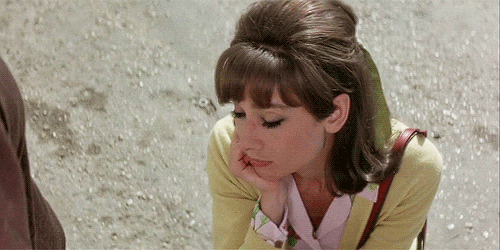
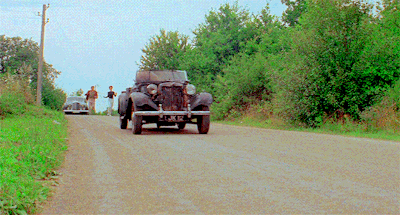
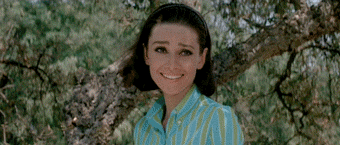
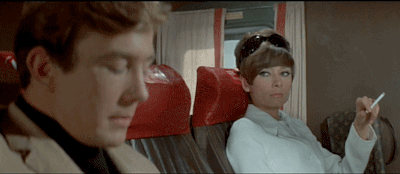

Comments
Post a Comment